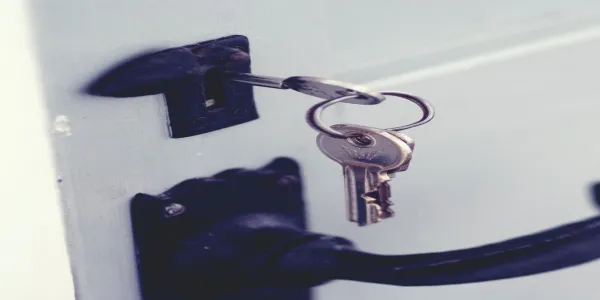Buying a house is a huge decision. Viewing property is an opportunity for you to determine whether it can suit your lifestyle and be your new home. You’ll also want to be very clear on the condition of the property so you know what it’s worth and can make an appropriate offer.
Below is our house viewing checklist, so you know exactly what to look out for when viewing properties.
Room Sizes
You should make sure the rooms are big enough for your needs. You will have probably got a floor plan from the estate agents, but you can also take a tape measure with you to ensure they will fit what is needed.
Often rooms will be “staged” so they look bigger, using light, mirrors, and small furniture to give the appearance of more space. Make sure you’re aware of this and try to judge rooms objectively.
Damp
When you’re looking around a property, you should check every room for signs of damp. Damp can cause big problems and it can be tricky to get rid of, so you’ll want to be fully aware if it’s present in a property. Often, sellers will try to hide damp by repainting a room or attempting to mask the smell.
Signs of damp include a musty smell, watermarks on the wall or ceiling, flaky plaster or paintwork and peeling wallpaper, as well as patches of mould. You should check carefully near the ceiling and down by the skirting board for signs of damp or mould, as these are the areas it is most seen.
Storage Space
Storage can be an easy thing to forget about when you’re viewing a property, but it can make a big difference to your day-to-day life after you’ve moved in. You should consider what you will need to store and whether the property has the space. You should think about where you’ll store items like your vacuum cleaner, suitcase, spare bedding, and towels.
It might be that the property has little storage space currently, but it might have space to build cupboards and shelving down the line.
Aspect
The way your house faces can make a huge difference to the amount of natural light it gets and also the amount of sunlight the garden will get. The estate agent may be able to tell you the property’s aspect, or you could even take a compass with you to the viewing to check yourself.
You should consider whether any rooms have large windows or glass doors, as these can let in lots of natural light but could also mean the room heats up too much when the sun is shining in. South-facing gardens will get the most sunlight during the summer months, whereas north-facing gardens will likely be in shade for most of the day.
Electrics and Plumbing
You should take some time to check the electrics and plumbing are all working as they should. Run the taps to check the water pressure and if possible, see how hot the radiators get and how long it takes for them to get warm. Take a look inside any cupboards underneath sinks to make sure they’re dry and there are no leaks.
To check the electrics, turn lights on and off and also check plug sockets work correctly. You should also consider how many plug sockets are in each room and if there are enough for your needs. Look out for any wires that might be exposed or broken – it can be expensive to fix large electrical issues, so you’ll want to ensure everything is working and safe.
Structure
Keep an eye out for any large cracks in the wall, as these could suggest a structural issue. Any major problems will likely be highlighted in property surveys that are carried out as part of the conveyancing process, but you should look for any obvious signs beforehand. You should walk around the outside of the building to check for cracks, as well as looking inside.
You should also look at the roof to ensure no tiles are missing and there are no cracks. You should also try to see what condition the gutters are in and if they work properly when it’s raining.
You should also check the condition of all the windows to make sure the frames are intact, both inside and outside. You should check to see if any wooden frames are rotten or if there is condensation inside the double-glazing, as these are both issues that will need to be fixed.
Fixtures and Fittings
You should ask what will be staying and what the seller will be taking with them, especially with items like light fixtures and other fittings. You’ll need to understand what items you might need to buy, like curtains, a fridge, a washing machine, as this will all affect your budget and could affect how much you’re able to offer on the house.
The Local Area
You should look at the local area and make sure it has everything you might need to suit your lifestyle. For example, if you regularly use public transport, look to see where the local bus stop and train station are. Look to see where the nearest shops are and if there’s anywhere in walking distance where you can get groceries if needed. Think about what’s nearby that could be noisy or cause disruption, like a busy road flightpath, school, or pub. Take some time to think about whether you can see yourself living in the area.
If possible, when you’re serious about a property you should arrange to have another viewing at a different time of day, so you have an opportunity to notice anything that’s different. You could also take some time to walk around the local area to see if it’s right for you.
Whether you’re buying or selling your home, SOLD.CO.UK are the property experts. We have a huge range of properties for sale and can help you to find your dream home. Or we can help you to sell your house for free, with our fully managed property sales service. Contact us to see how we can help with your property.
















